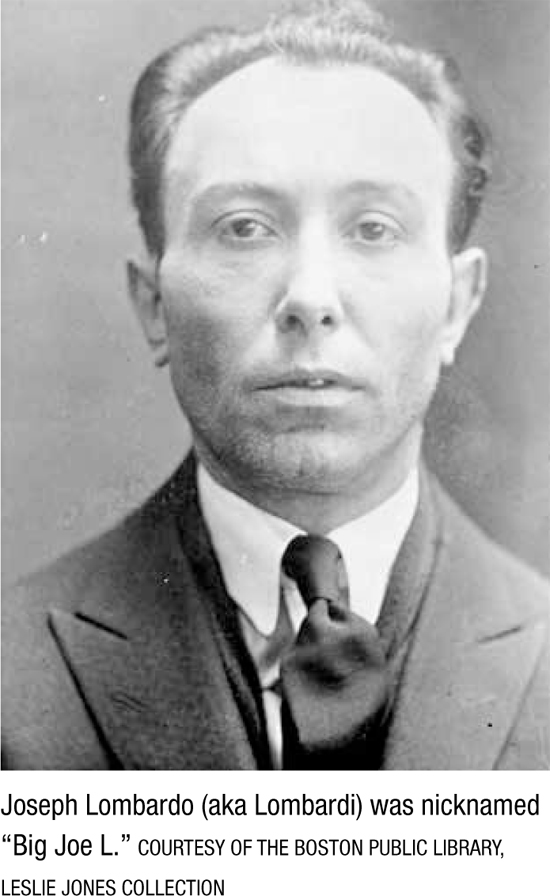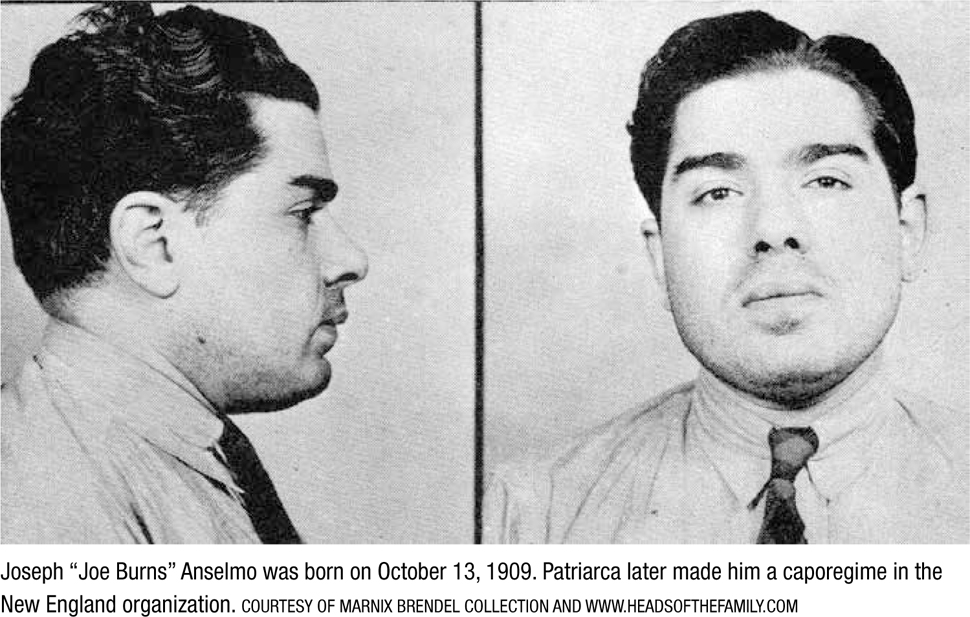
CHAPTER SEVEN
Looking out at the skyscrapers on the Manhattan skyline, Gaspare Messina couldn’t wait to get on dry land. It was November 25, 1905, and twenty-six-year-old Messina was on the most important trip of his life. He and his wife, Francesca, were passengers aboard the S.S. Citta di Napoli, and they had traveled all the way from Sicily. This was their sixteenth day on the steamship, and the two newlyweds were about to reach their final destination. It was a dreary, rainy Saturday, but unseasonably warm for that time of year.

As they made their way north up the Hudson River, the excitement began to build. A large crowd of Italians gathered on the pier at West 34th Street to welcome the ship. Nine Italian men hired a rowboat to get closer to the ship. As the Citta di Napoli approached the pier, one of the men in the crowded rowboat stood up and called out to the passengers, but his greeting was cut short when the rowboat capsized. All nine men, and their hired rower, plunged into the frigid waters of the Hudson with a loud splash. The crew of the Citta di Napoli launched lifeboats to rescue the men, who were yelling and thrashing about in the river.
This was Messina’s first introduction to life in New York. He and his wife would spend the next decade in Brooklyn and have their first children there. Around 1915 Messina relocated his growing family to Boston. They moved into the North End, a historic waterfront neighborhood with a patchwork of streets dating back to the seventeenth century. It was a bustling, congested community lined with shops, cafes, restaurants, and bakeries. This is where Gaspare Messina established himself as one of the earliest mob bosses in the city of Boston.

Messina had grown up in Sicily, in the shadows of a medieval castle in the hilltop village of Salemi. Messina quickly earned respect from his fellow Sicilians in the United States, and became a capo —or boss—of the Sicilian Mafia.
By 1925 Messina was operating a wholesale grocery business—G. Messina & Company—at 28½ Prince Street. One of his business partners was Frank Cucchiara, who also hailed from Salemi, the same Sicilian village that Messina came from. Cucchiara was sixteen years younger than Messina and had a lengthy rap sheet.
In March 1927, forty-seven-year-old Messina filled out a Declaration of Intention. He listed his occupation as baker, pledged to renounce his allegiance to Italy’s ruler, King Victor Emmanuel III, and agreed to the following statement: “I am not an anarchist; I am not a polygamist nor a believer in the practice of polygamy; and it is my intention in good faith to become a citizen of the United States of America and to permanently reside therein: SO HELP ME GOD.” He then scribbled his signature in black ink neatly along the dotted line.

Messina was well respected by his cohorts, and served the role as a power-broker and peacekeeper. In 1930, when organized crime factions in New York were battling for power during the so-called “Castellammarese War,” Messina was chosen to serve as the Mafia capo dei capi —or “boss of bosses.” The position was only temporary, but it showed the respect he commanded from his peers. He had risen to the position of highest-ranking Mafioso in the country.
In addition to his wholesale grocery business, Messina was president of the Neptune Oil Company on the T Wharf in the North End. While his business interests remained in the North End, he moved his family out of the neighborhood to 49 Pennsylvania Avenue in Somerville. By all accounts, Gaspare was a successful businessman who stayed out of trouble, but he didn’t talk about work at home.

Messina was eventually succeeded by Filippo (Phil) Bruccola as the leader of the Mafia in Boston. Other members of the organization included Michael “Mickey the Wiseguy” Rocco, Joseph “Joe Burns” Anselmo, Anthony Santaniello, John Guglielmo (aka Johnny Williams), and Henry Selvitella, who was also known by an alias, Henry Noyes. Another important person was Joseph “J. L.” Lombardo, who was a sportsman and business partner of Frank Cucchiara. In the 1930s Lombardo was listed as living with his elderly parents at 100 Lawrence Street in Medford. Cucchiara and Lombardo allegedly ran a lottery and bootlegging operation from the offices of C & F Importing Company on Hanover Street in the North End.
Authorities kept a close watch on Messina’s associates. The following dossiers were presented at congressional hearings many years later:
Aliases: Frank Caruso, Frank Russo, Frank the Spoon
Description: Born March 29, 1895, Salemi, Sicily; naturalized August 10, 1931, Boston, Mass., 5 feet 3½ inches, 156 pounds, stocky build, brown eyes, hair brown and graying, has 6-inch scar in palm of left hand
Localities frequented: Resides 282 Common Street, Watertown, Mass., frequents Purity Cheese Co., European Restaurant, Giro’s Cafe, Florentine Cafe, all in Boston
Family background: Wife: Santa Lucy Giordano; no children; brother: Peter (Boston); sister in Italy; father: Vito; mother: Antonia Cardonna
Criminal associates: Philip Buccola, Raymond Patriarca, John Guglielmo, Rocco Palladino, Henry Selvitella, Albert Santaniello, Frank Morelli
Criminal history: Arrested 1925 Boston possession of morphine and dynamite, arrested again 1932 Boston suspicion of murder
Business: Owns Purity Cheese Co., 55-57 Endicott Street, Boston
Modus operandi: Attended Apalachin meeting 1957 as representative of the Mafia from the New England area; operates gambling joints in North End of Boston; finances narcotic transactions
Aliases: Philip Bucollo, Phil Bucalo, Filippo Bruccola
Description: Born on August 6, 1886, in Palermo, Sicily; 5 feet 7 inches, 167 pounds, medium build, brown-gray hair, brown eyes, dark complexion; naturalized in Boston, Mass., in 1927; holds American passport No. 31902 as Filippo Bruccola
Localities frequented: Resides Axienda Agraricola, Sicilone, Via Magni 9, Pallavecino, Palermo, Sicily; when in Boston frequents Giro’s Cafe and the European Restaurant
Family background: Father, Vincent; mother, Nina Blandino (both dead); married to Rosena McDonough; nephew, Joseph Buccola, and wife’s nephew, Richard Hogan, are both pinball machine operators in Boston
Criminal associates: Salvatore Lucania, Joseph Doto, Frank Cucchiara, Raymond Patriarca, Henry Selvitelli, John Guglielmo, Albert Santaniello, Joseph Lombardi, and all top-rankIng hoodlums in the Boston area
Criminal history: Was first arrested in 1923 for carrying a loaded weapon and paid $100 fine; additional arrests for gambling and suspicion of murder
Business: Owns shares [of] Revere dogtrack, and has money invested in the Hotel Bostonian
Modus operandi: Went to Sicily in 1954. In Boston was the head of the New England Mafia. He came to Boston two weeks before the Apalachin meeting in 1957, returned to Sicily shortly thereafter.
Years later, Messina’s grandson, Marc Messina, recalled being told as a young boy that his grandfather was “a judge who helped get justice for Italian immigrants.”
“You didn’t ask questions when he put his hat on,” said Marc. He recalled that his grandfather’s demeanor was calm, and stern when necessary, and that he never saw him lose his temper, raise his voice, or strike anyone.
Around 1985, Marc was living in the North End, where he still felt the presence of his grandfather. One day, he was picking up some items from a local shop. He went to check out with about $15 worth of products when he noticed an elderly gentleman sitting in an old wooden chair behind the counter sort of nod at the cashier. When it came time to pay, they wouldn’t let him. Eventually Marc relented, thanked them, and said he appreciated it. The man then mustered up every bit of energy and pointed a cane at him and said. “What makes you think this is for you? This is for your grandfather.”
Marc still has some of his grandfather’s handguns. One thing he noticed when he acquired those old firearms—the serial numbers had been filed off several of them.